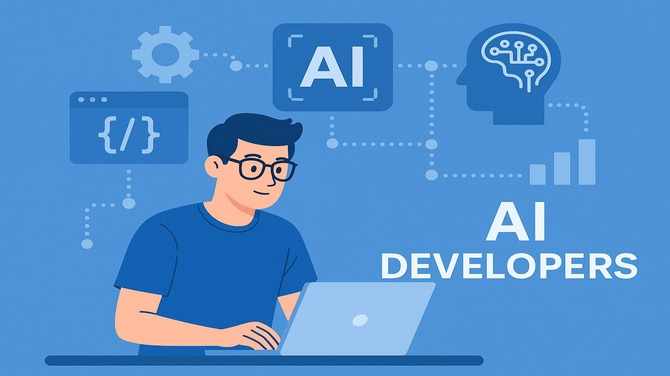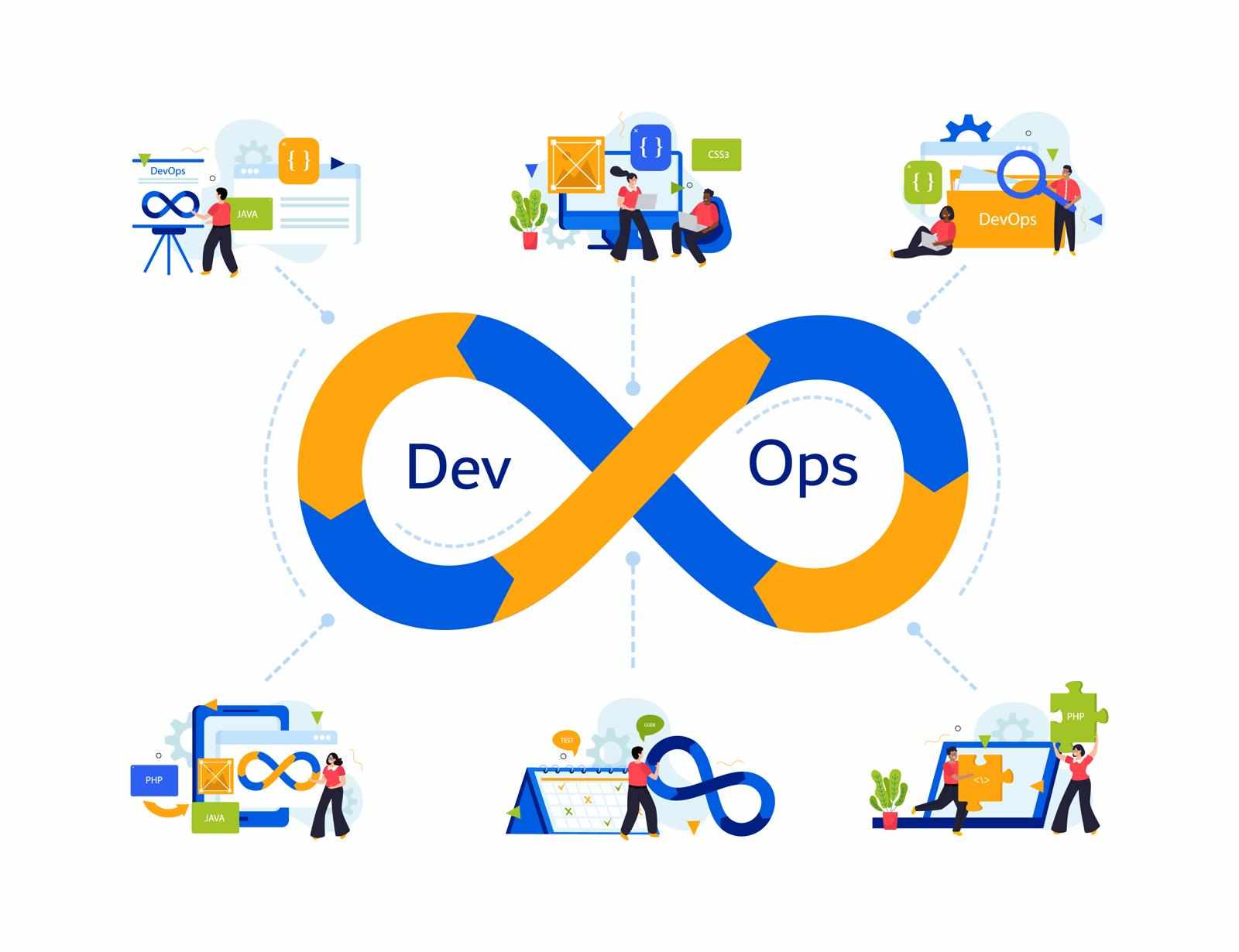
The fintech industry stands at a critical crossroads where artificial intelligence determines market leadership. Companies that move quickly to hire AI developers will secure competitive advantages that slower competitors cannot replicate. The talent shortage is real, and waiting means losing access to the skilled professionals who can transform your fintech business.
Market data reveals that the AI in fintech market reached $44.08 billion in 2024, with growth accelerating rapidly. Meanwhile, 87% of organizations struggle to hire AI developers, with average time-to-fill reaching 142 days. This gap between demand and supply creates an urgent imperative for fintech companies to act now.
The AI Revolution Reshaping Fintech
Artificial intelligence has moved from experimental technology to core business infrastructure in financial technology. FinTech companies that embrace artificial intelligence will gain an edge over the competition and improve their chances of success. This transformation affects every aspect of fintech operations, from customer onboarding to risk assessment and fraud detection.
The scope of AI integration continues expanding as companies discover new applications for machine learning algorithms and natural language processing. Payment processing, lending decisions, investment advisory services, and regulatory compliance all benefit from AI-powered automation and insights.
Machine Learning Applications in Modern Fintech
Today's fintech leaders deploy machine learning models for real-time fraud detection that outperform traditional rule-based systems. These models analyze transaction patterns, user behavior, and risk indicators simultaneously, providing instant decisions while maintaining high accuracy rates. Credit scoring algorithms now incorporate alternative data sources, enabling lending to previously underserved populations.
Customer service chatbots handle routine inquiries with natural language understanding, while recommendation engines suggest personalized financial products based on spending patterns and life events. Investment platforms use algorithmic trading strategies that process market data faster than human analysts ever could.
Current Talent Shortage Creating Market Opportunities
The artificial intelligence talent crisis presents both challenges and opportunities for forward-thinking fintech companies. 76% of survey respondents cite a severe shortage of AI-skilled personnel, creating intense competition for qualified professionals. Companies that act decisively can secure talent before competitors recognize the urgency.
Firms need AI skills both as developers and as prompt engineers, highlighting the diverse technical expertise required for successful AI implementation. This shortage extends beyond basic programming skills to include specialized knowledge in machine learning frameworks, data engineering, and AI model deployment.
Skills Gap Impact on Innovation Timelines
The talent shortage directly affects how quickly fintech companies can implement competitive AI solutions. Projects that should take months stretch into years when teams lack sufficient expertise. Companies often find themselves dependent on expensive consultants or struggling with poorly performing AI systems built by inexperienced developers.
This delay in AI adoption can be fatal in the fast-moving fintech sector where customer expectations evolve rapidly. Companies without AI capabilities risk losing customers to competitors who offer superior automated experiences and personalized services.
Why Fintech Companies Must Hire AI Developers Immediately
The window for gaining first-mover advantages through AI is rapidly closing as more companies build these capabilities. Early adopters have already demonstrated significant benefits including reduced operational costs, improved customer acquisition, and new revenue streams. Global AI in FinTech market size is expected to reach $52.19 billion by 2029, indicating massive growth opportunities for companies with proper AI expertise.
Customer expectations have permanently shifted toward AI-powered experiences. Modern users expect instant loan approvals, personalized investment advice, and proactive fraud protection that only sophisticated AI systems can deliver. Companies without these capabilities appear outdated compared to AI-enabled competitors.
Regulatory Compliance and Risk Management
AI developers with fintech experience understand the complex regulatory environment governing financial services. They can design systems that maintain compliance while maximizing performance, ensuring that AI implementations don't create new regulatory risks. This expertise becomes increasingly valuable as regulators develop frameworks specifically for AI oversight in financial services.
Experienced professionals also understand how to implement proper model validation, algorithmic fairness measures, and data governance that regulators demand. Without this knowledge, companies may face costly compliance failures or regulatory sanctions that damage their market position.
Strategic Advantages of Building Internal AI Teams
Organizations that successfully hire AI developers gain multiple strategic advantages beyond immediate operational improvements. Internal teams develop deep understanding of the company's unique challenges, enabling them to create custom solutions that generic software packages cannot match. This customization often provides sustainable competitive differentiation.
AI development teams also drive cultural transformation within fintech companies. They introduce agile development practices, data-driven decision making, and continuous experimentation mindsets that benefit the entire organization. These cultural changes often prove as valuable as the specific AI applications they develop.
Innovation Acceleration Through Technical Expertise
Skilled AI developers can rapidly prototype new solutions, allowing fintech companies to test innovative concepts before major investments. This capability enables faster responses to market changes and customer demands. Teams with strong AI expertise can also integrate multiple technologies, creating comprehensive solutions that address complex financial challenges.
The presence of AI talent also attracts additional technical professionals who want to work on cutting-edge projects. This creates positive feedback loops that strengthen the company's overall technical capabilities and reputation in the competitive talent market.
Competitive Landscape Analysis
The fintech industry has become intensely competitive as traditional financial institutions adopt technology while pure technology companies enter financial markets. Firms are poised to assertively re-enter the market with a focus on upgrading talent and expanding teams in prosperous business areas. This renewed hiring activity increases competition for scarce AI talent.
Successful fintech companies must differentiate themselves through superior AI capabilities that create meaningful value for customers. Companies with strong AI teams can offer services that smaller competitors cannot match, such as sophisticated risk assessment, personalized financial planning, and automated investment management.
Market Share Protection Strategies
Fintech companies with advanced AI capabilities can defend their market positions by offering experiences that competitors cannot easily replicate. Real-time fraud detection, personalized product recommendations, and automated customer support create switching costs that protect customer relationships.
AI-powered companies can also expand into new markets and customer segments by offering services previously too expensive to deliver profitably. This expansion helps offset competitive pressures in core markets while generating new revenue streams.
Implementation Challenges and Solutions
Successfully integrating AI developers into fintech organizations requires more than just hiring skilled professionals. Companies must create environments where AI talent can thrive while working within financial services regulations and company culture. This often means adapting traditional project management approaches to accommodate agile development practices.
Change management becomes critical as AI systems alter existing workflows and job responsibilities. Fintech companies must prepare their workforce for these changes while maintaining operational stability during transitions.
Building Effective AI Development Culture
Creating successful AI teams requires fostering cultures of experimentation and continuous learning. Many fintech companies emphasize rapid growth and customer acquisition, which can conflict with the iterative approaches that effective AI development requires. Leaders must balance these competing priorities to enable innovation while maintaining business momentum.
Successful organizations also invest in ongoing education for their AI teams, recognizing that artificial intelligence technologies evolve rapidly. This commitment to continuous learning helps retain talent and ensures that AI capabilities remain current with industry developments.
Cost-Benefit Analysis of AI Investment
While the decision to hire AI developers requires significant upfront investment, the long-term benefits typically far exceed costs. Companies with AI capabilities report improved operational efficiency, better customer retention, and new revenue opportunities that compound over time. The cost of not investing often exceeds investment costs when considering lost market opportunities and competitive disadvantages.
AI implementations typically show returns through multiple channels including reduced processing costs, improved decision accuracy, and enhanced customer experiences. Fraud detection systems alone can save companies millions annually while AI-powered customer service reduces support costs and improves satisfaction scores.
Return on Investment Calculations
Revenue generation through AI-enabled services provides additional returns that continue growing as capabilities expand. Companies with strong AI teams can continuously develop new revenue streams, creating sustainable competitive advantages. The global market is expected to grow by $56.9 billion by 2030, indicating substantial opportunities for companies that invest in AI capabilities today.
The financial impact extends beyond direct cost savings to include improved risk management, better customer acquisition, and enhanced operational scalability. These benefits compound over time as AI systems process increasing volumes of data and handle more complex tasks.
Future Outlook and Strategic Recommendations
The importance of AI talent in fintech will only increase as artificial intelligence capabilities advance and customer expectations evolve. Companies that build strong AI development teams today position themselves for long-term success in an increasingly automated financial ecosystem. Strategic planning must account for the ongoing nature of AI development, recognizing that building these capabilities requires sustained investment.
The fintech industry stands at a critical juncture where AI adoption will determine long-term market position. Companies that hire AI developers and build comprehensive artificial intelligence capabilities now will lead tomorrow's financial technology markets, while those that delay risk losing relevance in an increasingly competitive landscape.




















Write a comment ...